“This is not a PR stunt”: foodpanda S’pore joins forces with Traffic Police to protect riders
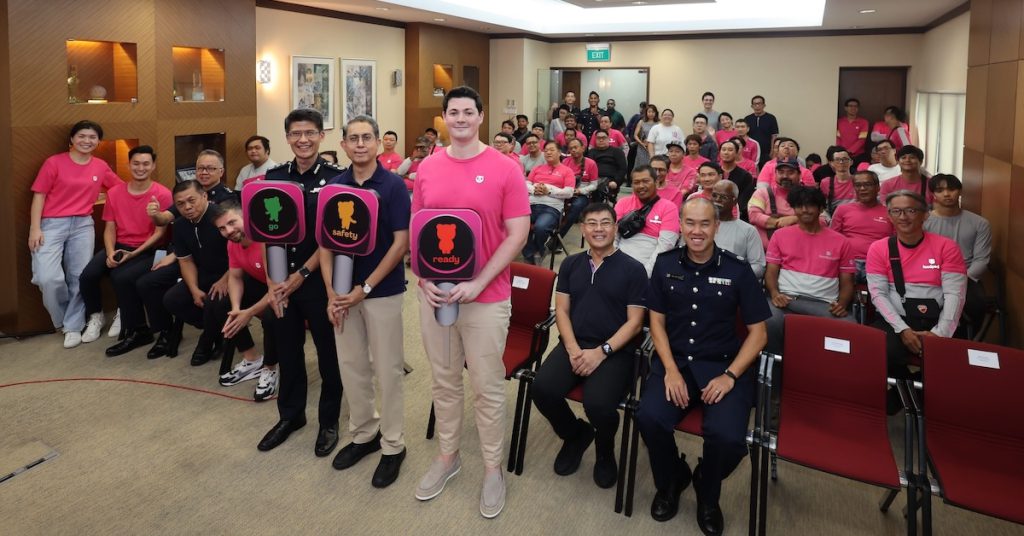
foodpanda Singapore launched its inaugural Rider Safety Month yesterday (October 7), which aims to enhance the safety of its delivery partners.
The initiative is launched in partnership with the Singapore Traffic Police (TP), with Associate Professor Muhammad Faishal Ibrahim, Minister of State, Minister of Home Affairs, and Ministry of National Development, attending as the guest of honour.
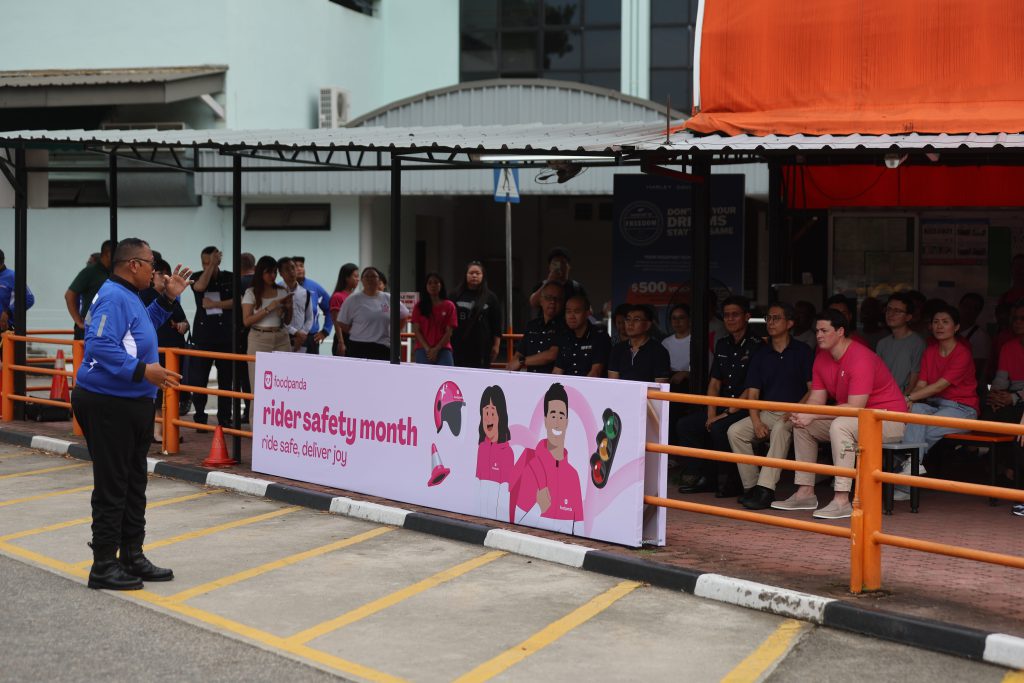
45 delivery partners participated in the launch event and demonstration, which was held and led by ComfortDelGro Driving Centre (CDC), and where some instructors gave tips on what riders could look out for their safety whilst on the road.
Providing care for their riders
According to a 2022 report by CNA, the safety of food delivery riders was placed under the spotlight after it was revealed in parliament that five drivers had passed within 18 months.
Since then, foodpanda Singapore has joined hands with Grab and Deliveroo to form the Digital Platforms Industry Association (DPIA)—an association that aims to strengthen frameworks to better support riders and merchants.
foodpanda has also continued to invest in rider’s safety, with the Rider Safety Month being their newest initiative launched in line with the cause.
Jamie O’Mahony, Chief Financial Officer of foodpanda, expressed his commitment to the cause. In his opening address, he shared that he lost family members to road traffic accidents and that this has made him passionate about advocating for the safety of drivers.
“This is not a PR stunt for us. I really want us to be driving positive change moving forward, and for that reason, this should hopefully work as more of a catalyst on how we can start working and be in partnership with all of the stakeholders that are here today, to drive forward the agenda for riders and other road users,” he stated.

In October, foodpanda delivery riders can sign up for hands-on safety training courses, which will be tailored according to the vehicle type and conducted by the CDC and the Singapore Cycling Federation.
Riders who participate in the course will receive a complimentary safety and essentials kit, which includes an emergency toolkit, rain gear, reflective shirts, first-aid kit and more. Those who demonstrated their commitment to road safety will also be eligible for rewards of up to S$300.
This collaboration is part of the lead up to the Traffic Police’s Singapore Ride Safe campaign, which strives to promote safe riding behaviours among motorcyclists, including delivery riders. I think it is important that such efforts not only help to reduce accidents, but also contribute to creating safer roads and paths for all. So, I would like to encourage more industry stakeholders and businesses to promote a strong road safety culture so that it is safe for the delivery riders.
Associate Professor Muhammad Faishal Ibrahim, Minister of State, Minister of Home Affairs, and Ministry of National Development
Also Read: After Yew Tee, foodpanda is giving free one-month pandapro subscriptions to Simei residents.
Featured Image Credit: foodpanda Singapore
You’ve probably never seen speakers as beautiful as these designed by a S’porean brand
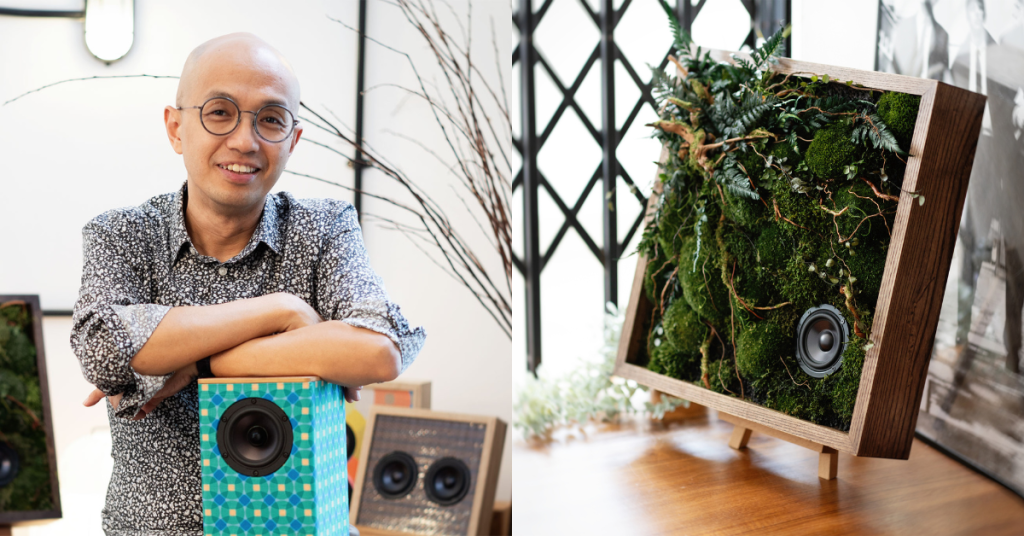
You’ve probably never seen speakers the like of Decibelist’s.
At least I never have. These bespoke speakers, designed right here in Singapore, feature some of the most unique designs visually. There are some that resemble art frames, while one is quite literally an upcycled Suntori Hibiki 12 Japanese whisky box.
Of course, these unique designs all still work as speakers, making them functional art pieces.
And behind all these unique creations by Decibelist is its founder, Brian Ho.
Meet the engineer
Trained as a computer engineer, Brian’s career spans over multiple disciplines and industries. This includes software development, technical consultancy, marketing and advertising, and most recently, photography.
Specifically, Brian has been shooting wedding photography. Even more specifically, he has been shooting wedding photography with old-school analogue film for the past 15 years.
He does this through The Galeria, which he runs alongside Decibelist.
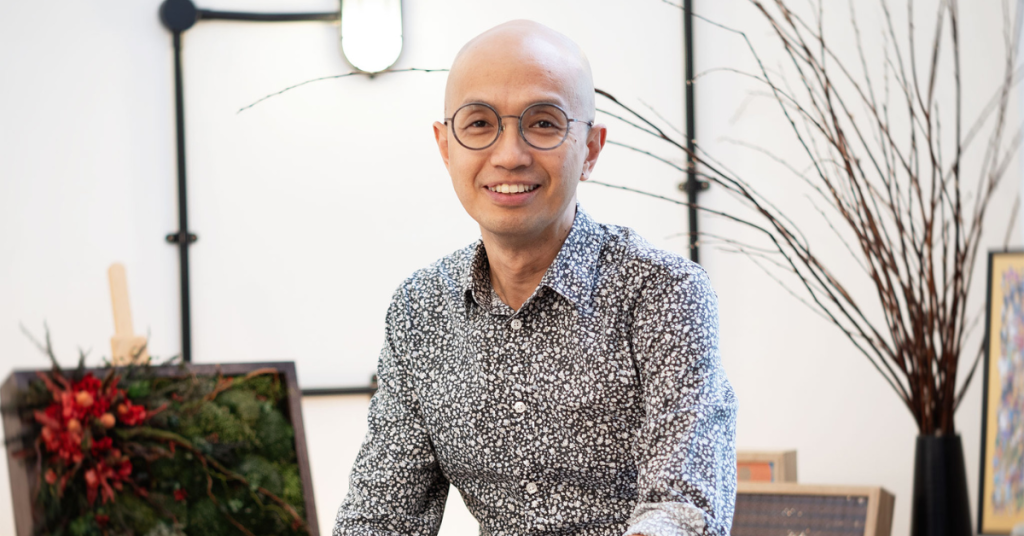
“One may say juggling two businesses is a tough act, but I would say I’m fortunate enough to be able to run two businesses that I’m madly passionate about,” he told Vulcan Post.
High fidelity (Hi-fi) and music have been long-time interests of Brian. It started out as a hobby but has turned into a lifelong passion as well as a business.
Decibelist didn’t start off as a business right from the start, though. Rather, it was an experiment where Brian was trying to reimagine the concept of music and art.
“How do we create speakers that are distinctively unique, aesthetically captivating, and yet sonically pleasing?” he wondered.
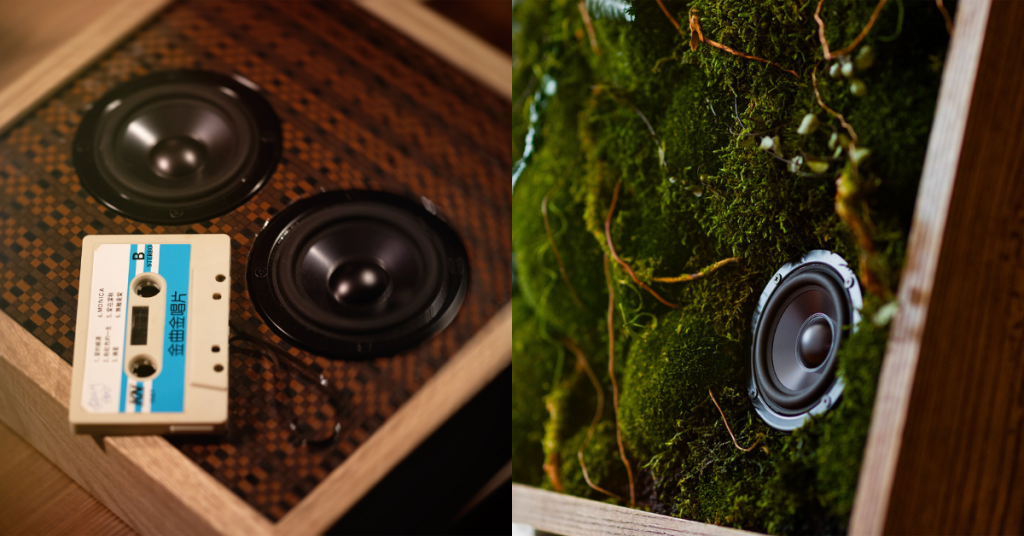
This mission statement is why Decibelist calls its speakers the Art Speakers—it’s a musical experience that embodies both art and music.
“It wasn’t so much to fill in existing market gaps but more of a way of reimagining music and creating a fresh concept and perspective of what music speakers haven’t been but can be,” he explained. “In some ways, we are creating a new concept.”
Not about the tech
But to clarify, Decibelist isn’t a tech company, nor does Brian aspire for it to be one.
“We don’t see ourselves as tech inventors but more as integrators,” he said. The tech used in the speakers isn’t new technology, but whatever’s already out there.
What they do instead is integrate art, technology, and music to form a unique musical experience.
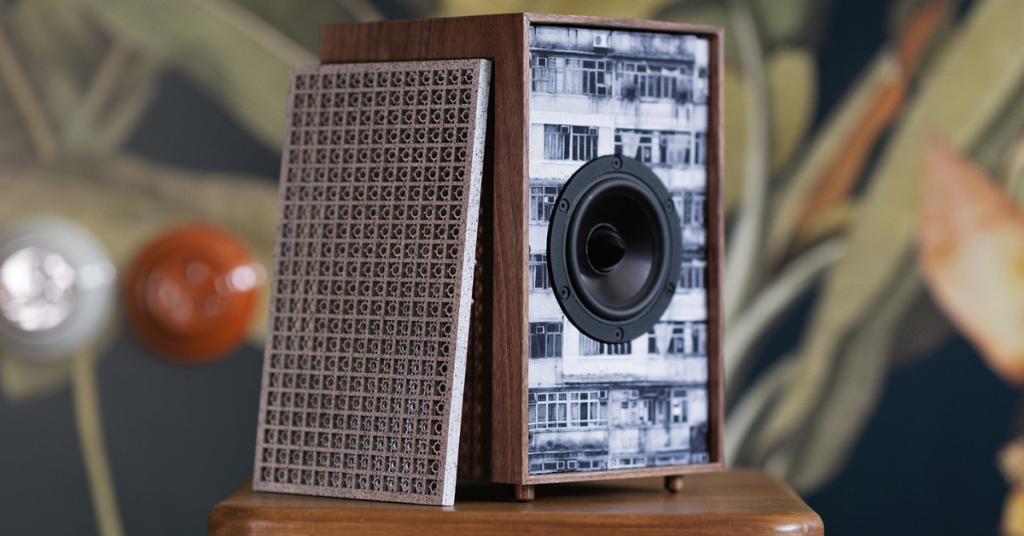
“The years of being an avid audiophile gave me the technical know-how and the experience I had in a wide-ranging set of industries gave me the diverse perspective,” Brian shared.
Inspiration for his art speakers can come from anywhere, from conversations and everyday objects to books and films. Even dreams and imaginations can be turned into reality.
“We just need to be perceptive of things around us,” he mused. “The simplest things can very well turn into the greatest inspiration.”
Extending beyond that initial inspiration, though, more practical thoughts need to come in. Is the idea even possible? Do they have the required expertise to make it possible? If not, where can they find people who have the necessary expertise?
Understanding that he can’t possibly do everything himself to the calibre it needs to be done, Brian is a strong believer in collaborations and bringing artisans together.
That’s why many of Decibelist’s art speakers are works of collaboration with artisans who boast a diverse set of inspiration, expertise, and specialisation.
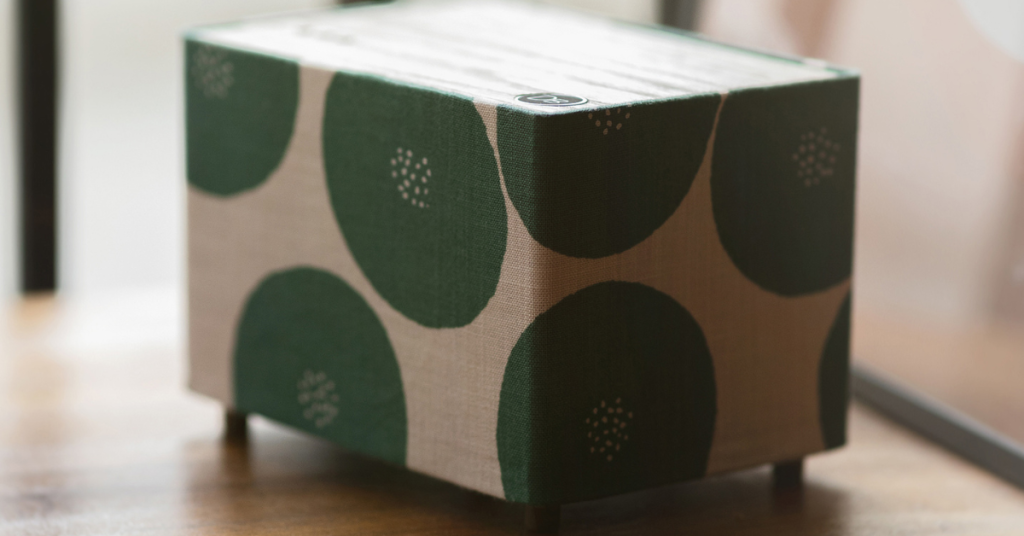
“To date, we’ve worked with artists, architects, interior designers, fashion labels, graphic designers, illustrators, landscapists, sustainable champions, wood crafters, and more. Each of them brings a unique perspective to how we reimagine music speakers,” Brian shared.
For example, the Botanique is a collaboration with a moss art designer to create what Brian believes might be the world’s first botanic-inspired speaker made from real plants.
There’s also the Post-Modernism piece, a collaboration with an architect to design a speaker that resembles more like a building than a speaker.
Pushing the envelope, Decibelist has also put out a speaker made out of upcycled cassette tapes and even used chopsticks.
A delicate balancing act
While aesthetics is a key component of Decibelist’s speakers, the product must still be functional.
“How do we achieve aesthetic and sound perfection? Is that even possible?” Brian mused. “At what point do we sacrifice sound perfection for a little aesthetic artistry?”
These are questions he deals with regularly as a speaker designer who is challenging conventional norms. The answer boils down to constant trial and error.
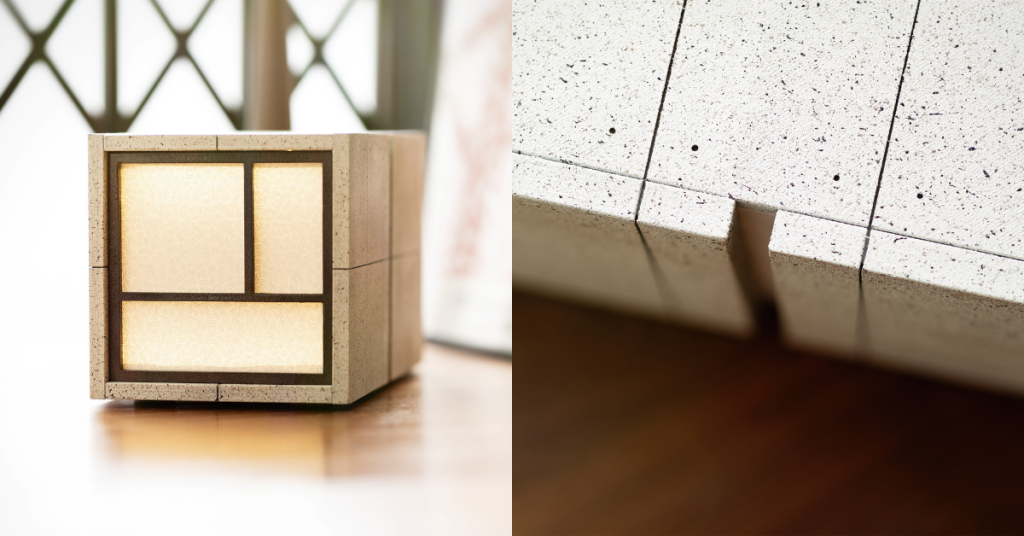
Brian shared that providing both aesthetic and sound perfection requires a delicate balancing act. While the ultimate goal is to achieve both aesthetic and musical perfection, the end result almost always involves a compromise.
At the very least, though, the speaker must be musically pleasing. Otherwise, it defeats the purpose of designing speakers in the first place.
The whole design process can take from a couple of weeks to a couple of months, depending on the complexity and intricacy of the project.
Most Decibelist speakers are made-to-order and custom-built, reflecting the owner’s unique personality. Occasionally, they do carry seasonal ready-made speakers, but many are limited-edition pieces.
A one-man operation
At the moment, Decibelist is a one-man operation by Brian, though he regularly collaborates with other artisans.
“While it’s hard to say for certain what the future holds, it’s likely Decibelist will remain a niche and small design firm that will continuously reimagine music speakers in distinctively unique ways,” the engineer shared.
He hopes to establish Decibelist as a to-go brand when people are looking for uniquely distinctive music speakers that aren’t like any speakers out there.
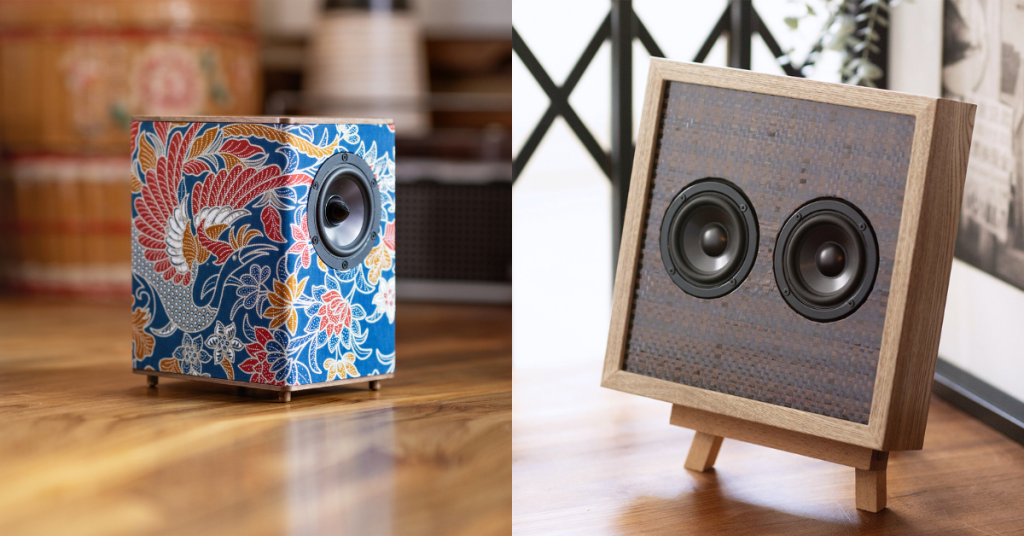
From there, he wishes to expand the idea of reimagining speakers to different concepts and fields.
“Can we reimagine lights and sound perhaps? Can we reimagine living spaces? Can we reimagine communal spaces?” he wondered. “What’s more likely is an amalgamation of these different reimaginations and the opportunities are endless…if we dare to dream.”
Looking at the scope of work he’s already done throughout his career and with Decibelist alone, I dare say that he does and will.
- Learn more about Decibelist here.
- Read other articles we’ve written about Singaporean startups here.
Also Read: 5 scenarios in which you would appreciate having the reliable ASUS Vivobook 16 for work
Featured Image Credit: Decibelist
This S’porean startup is breaking barriers by making space exploration more affordable
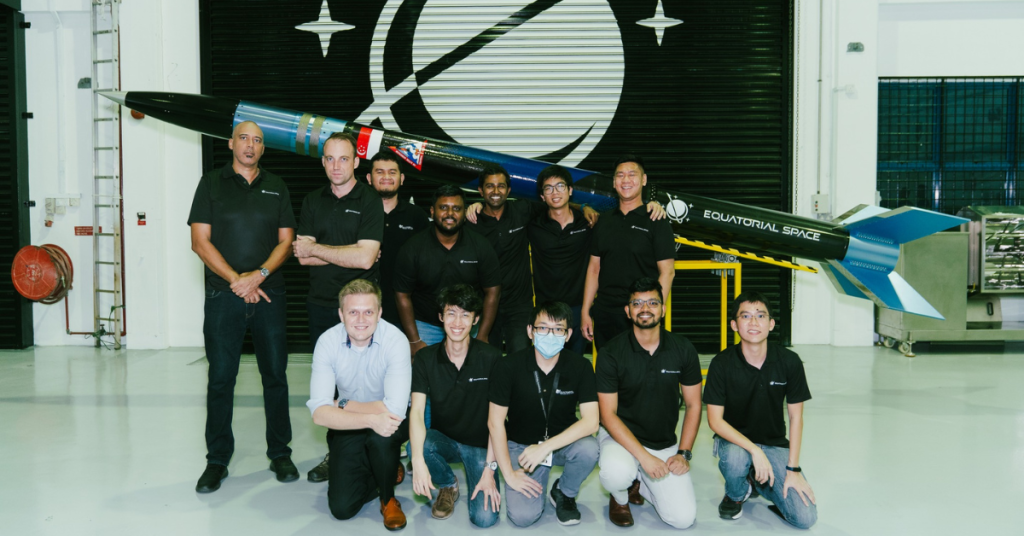
The dream of reaching for the stars is something many of us share, some more literally than the rest.
For Simon Gwozdz, Jamie Anderson, and Praveen G. Perumal, though, it’s not just a dream—it’s their reality. They’re the founders of Equatorial Space Systems (ESS), an aerospace startup in Singapore that’s making space access easier (and cheaper) for the masses.
What got them onto our radar (again, as we’ve featured them before here) was the recent news of their pre-Series A round, where they got an investment of S$25,000 by Protégé Ventures.
With this funding, what’s next for the company?
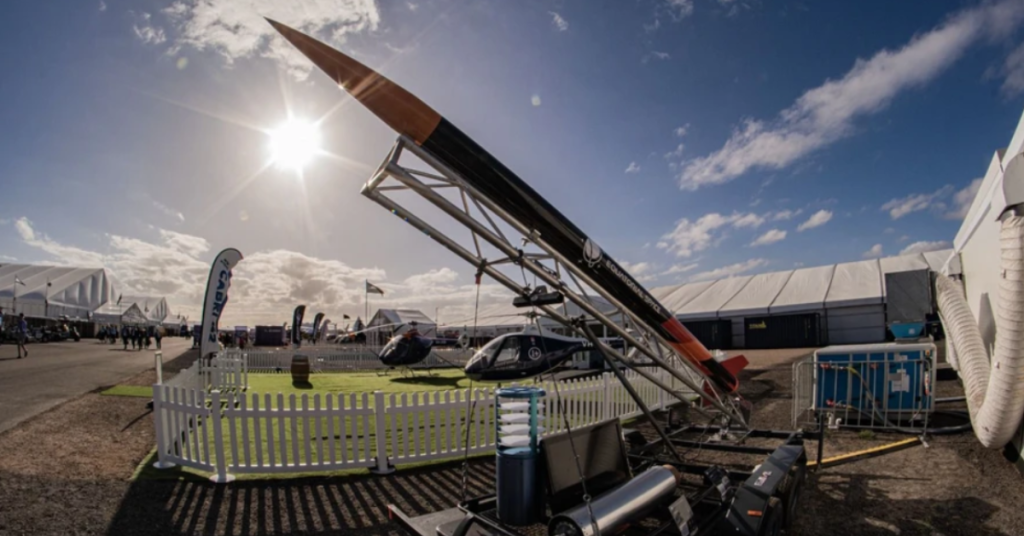
Launching SEA into the space race
“It was always my aspiration to enter the field of space tech and especially launch vehicles but it’s a highly niche industry that is only well established in a handful of places worldwide for a bunch of reasons,” Simon, the CEO of ESS shared.
He realised quickly that to have a shot in the industry, he’d need to create his own opportunities. So in his second year at National University of Singapore (NUS), he took decisive steps to fulfil this ambition.
It wasn’t long before he discovered a breakthrough which would achieve just that—small-scale hybrid propulsion prototypes. These didn’t involve explosives or “ridiculously expensive hardware”, which helped since he was still a student.
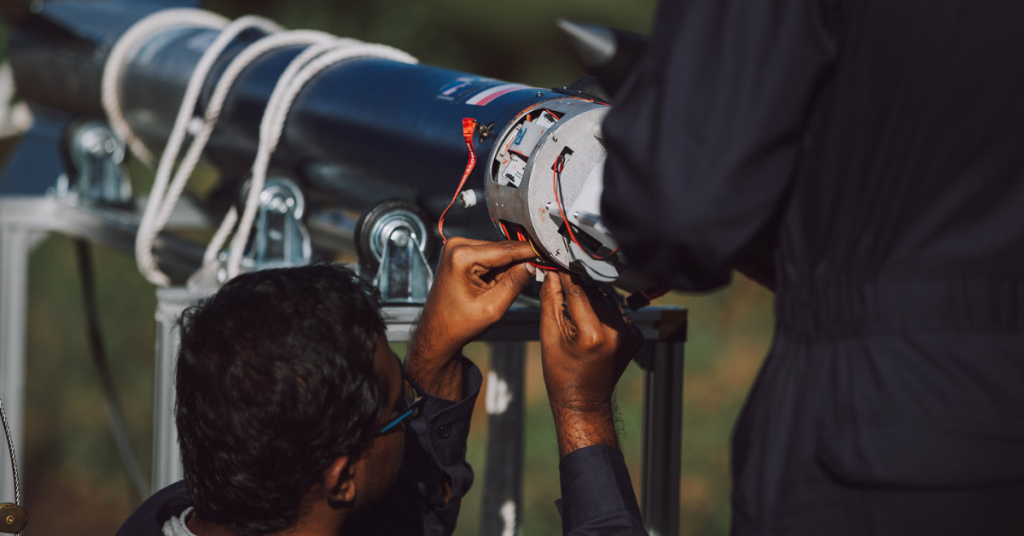
As for why Singapore, well, the opportunity presented itself. Southeast Asia had no real commercial push in the aerospace industry and Simon had lived in the country for most of his life.
That’s how ESS started in 2017 under a different name, Equatorial Space Industries (ESI).
When Vulcan Post first spoke to them in 2018, ESI saw the potential for nanosatellites to go mainstream. And the best way to bring this vision to life was to create a cost-efficient, high-frequency solution to nanosatellite launches.
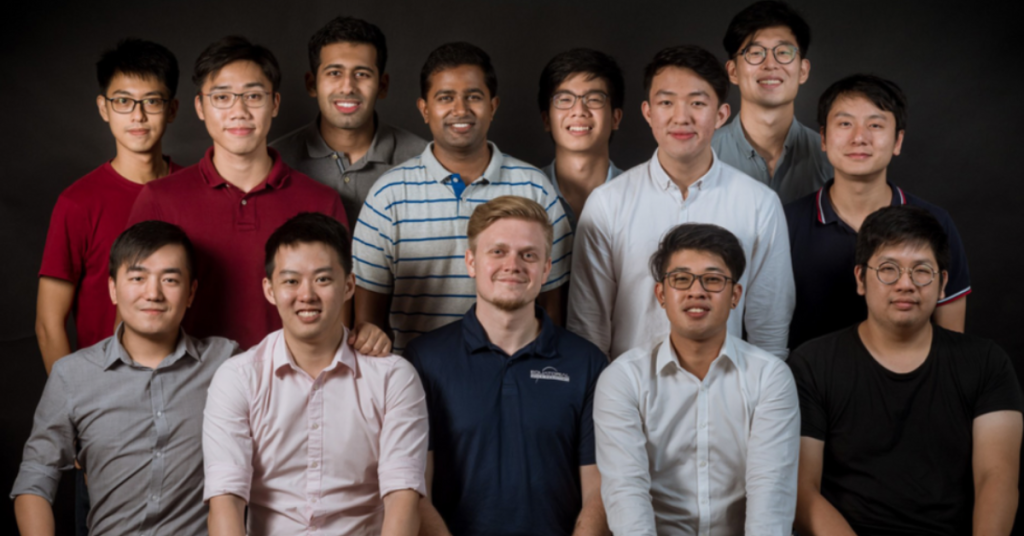
Hence, the idea of hybrid propulsion systems came about and became the startup’s main focus. Fast forward to 2024, and the grassroot initiative has made steady headway in the field.
Fuelling the future with hybrid propulsions
At this point you might be wondering, what the heck are hybrid propulsion systems?
They’re essentially what lifts rockets off the ground. In this case, hybrid refers to the use of liquid oxidiser and solid fuel instead of just either one, which are more traditional.
Without getting into the nitty gritty details, the general idea is that hybrid propulsion systems are safer and not as complex as traditional methods. As such, they’re a more efficient alternative.
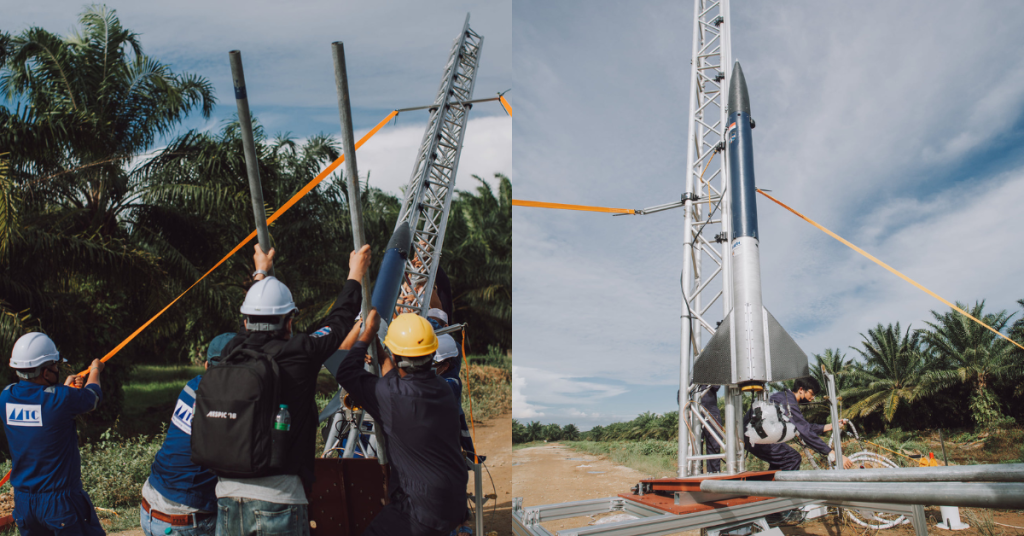
“Hybrids have been historically limited because of the performance characteristics and structural behaviour of the solid fuels. That is the challenge that we have resolved with our proprietary solid fuel formulation,” Simon explained.
With ESS’ hybrid solution, the startup is able to compete quite well in the market as it’s roughly a quarter the cost of traditional rockets.
In theory, this hybrid solution can power “the most capable launch vehicles” at a cheaper cost. Simon anticipates that once they leverage the economies of scale, they can bring the cost down to 1/6th of the existing market. Pretty impressive.
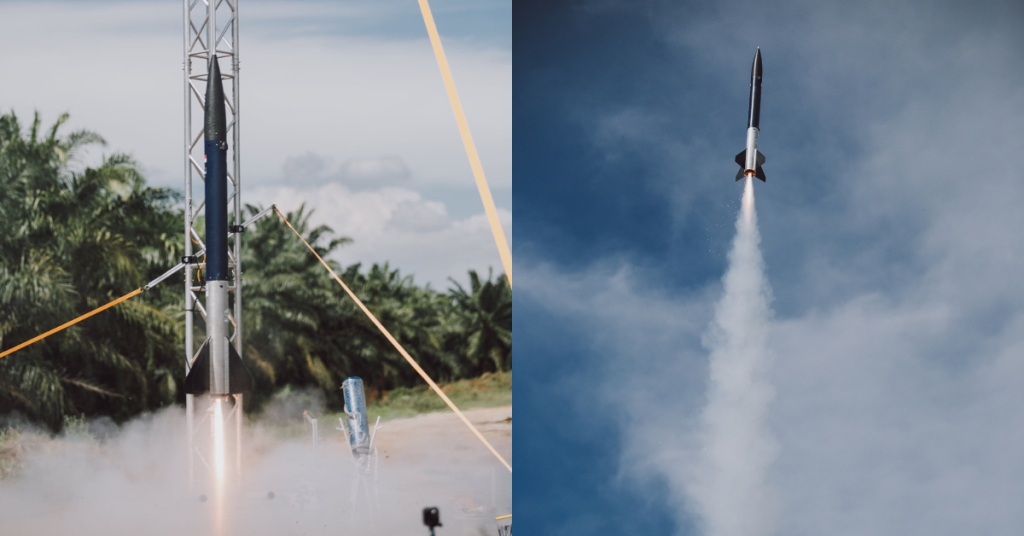
Making space access more accessible
Most of ESS’s clients are either testing hardware to iterate new ones quickly, or conducting biochemical and pharmaceutical research. This is called launch services.
Using the startup’s hybrid solution, they’ve proceeded to develop suborbital rockets. These rockets enter space but not to a high enough altitude where they can orbit the Earth.
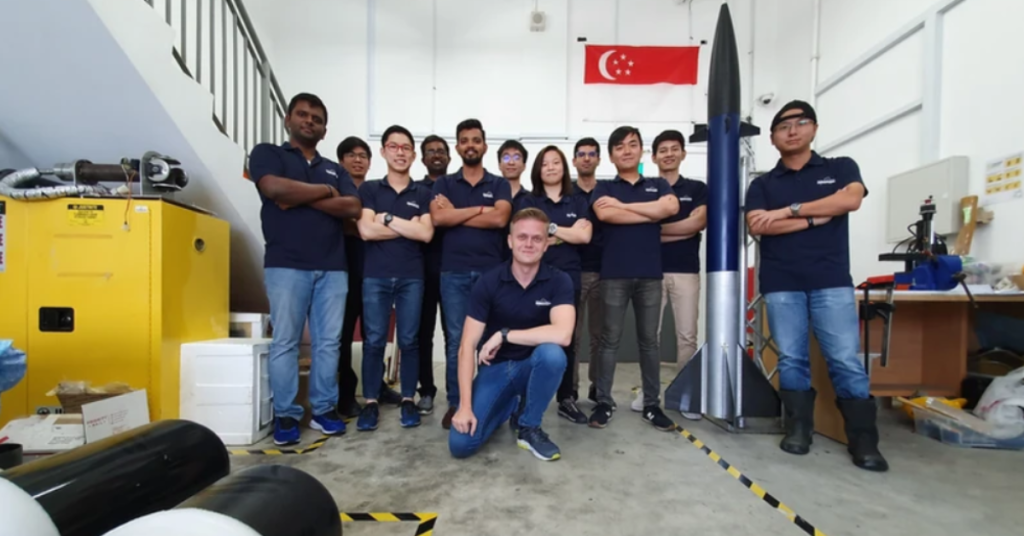
These industries typically conduct research using launch services to evaluate the interaction between chemicals while eliminating the influence of gravity. This fosters the development of new materials and drugs.
At the moment, Simon explained that it typically takes 18 to 24 months to fully develop rocket parts for satellite use. ESS’s services will bring it down to less than half a year.
“With that, we will be extremely well positioned to become the world’s springboard towards space,” he happily shared.
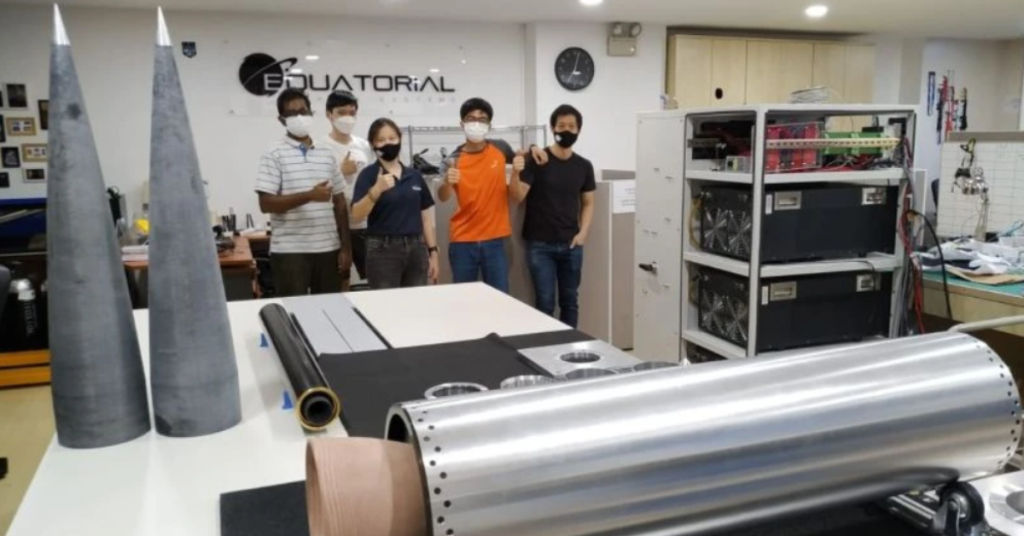
All of these are just steps towards the startup’s bigger goal—to offer satellite launch services for earth observation using nano satellites, and connectivity like IoT sensor data transfer.
Rocketing to new heights
Although originated from Singapore, ESS today is a global company with facilities, market, and talent pools stretching across the world. Their most recent expansion saw the establishment of a ground test facility in Northern Territory Australia.
This was made possible with the startup’s growing pool of investors, including the S$25,000 by Protégé Ventures in its pre-Series A round.
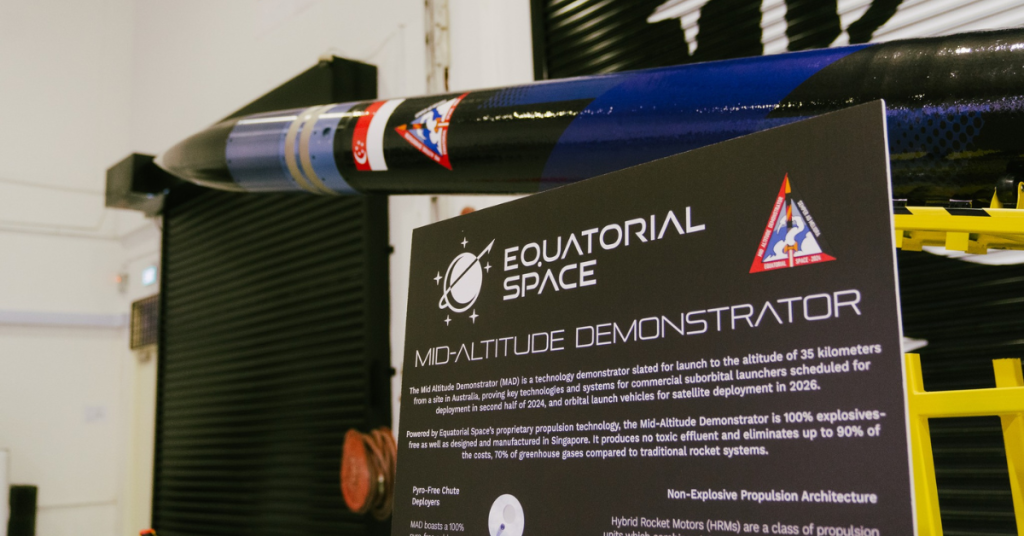
But what can S$25,000 do in the aerospace industry?
On this, Simon explained that ESS doesn’t focus only on the amount but also the strategic value of the investor. In Protégé Ventures’ case, the startup has confidence in the investment team achieving successful careers in the VC field in the longer term and opening up new opportunities in the years to come.
“We are not unlike any other high-growth company making steady progress towards disrupting existing markets and developing new niches that deliver revenue and profitability at the earliest.”
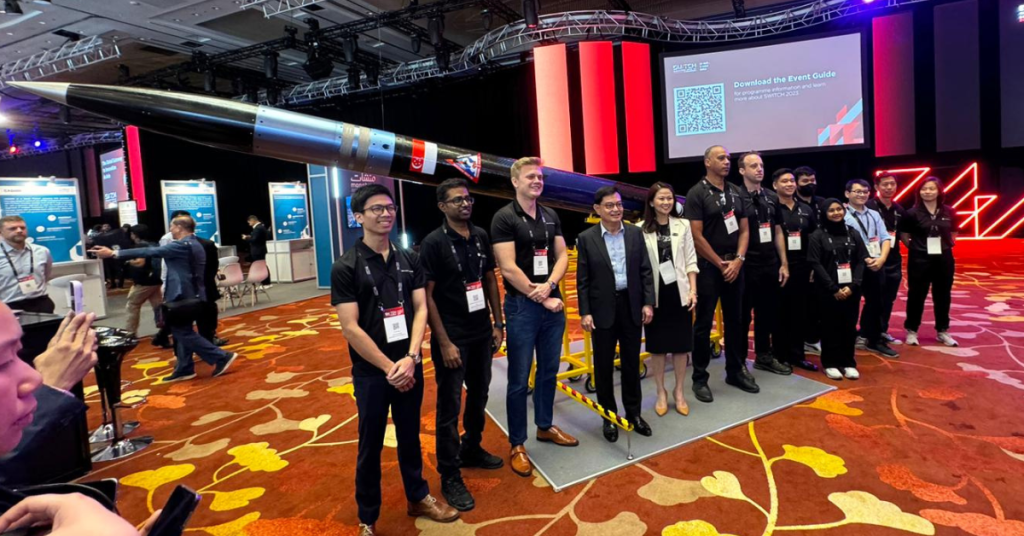
“While our current focus is on commercial sounding rockets, the technology holds the potential to transform the cost profile of [rocket] launch, even compared to the most established players in the next five to 10 years,” Simon exclaimed.
Interestingly, in just a few months, the startup will be commencing its first suborbital launches to space with commercial customers onboard. Maybe you or someone else you know will get to be a passenger soon?

- Learn more about Equatorial Space Systems here.
- Read other articles we’ve written about Singaporean startups here.
Also Read: Adapt or go obsolete: Learn to embrace AI & cybersecurity for your biz at this KL summit
Featured Image Credit: Equatorial Space Systems
Once an abandoned office, this Penang cafe is now known for fresh pasta & basque cheesecake
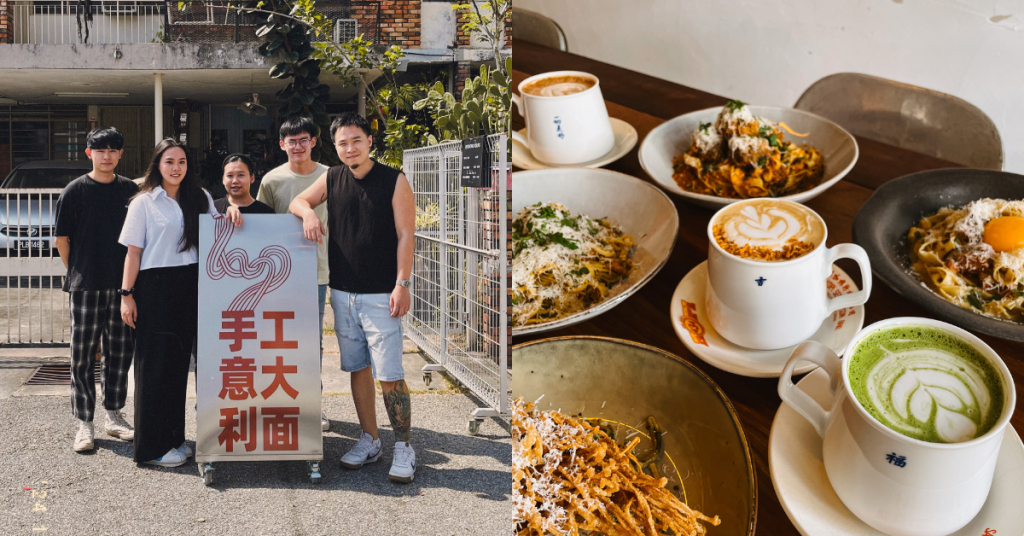
Before it was a popular eatery serving up cheesecakes and pasta, Syarikat Cafe in George Town, Penang had been an office. An abandoned one, at that.
“We still recall the day when it all begun,” founders and couple William and Jolene recounted.
“We were telling our friends and family about our plan of converting this abandoned office into a cafe, a place of art, a habitat for plants, and most importantly a place for everyone. Their first reaction was the normal ‘can meh?’ face.”
Well, as it turns out, yes. Can.
William and Jolene were able to achieve this despite having zero culinary experience.
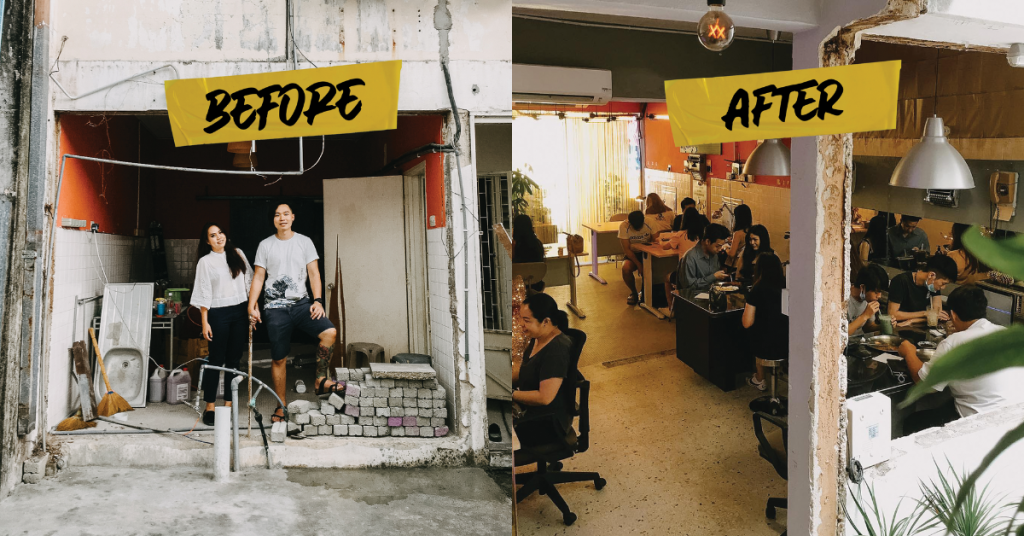
The two actually have a background in the creative industry, with William running an international wedding photography business (in the aforementioned office), while Jolene was the managing director of an event company.
That said, the two shared a common interest in starting an F&B business, sparked by their observations of the bubble milk tea craze. If people were willing to wait one to two hours to get a drink, surely there was an opportunity in the market for them to tap into, they thought.
As a start, they ventured into F&B with a small stall in a night market. Although this night market business didn’t perform as well as they’d hoped, it provided a valuable learning experience to the couple.
“There were times when we had to rush to set up our stall immediately after office meetings, which required us to quickly shift gears between two very different mindsets,” they shared.
At one point, they decided to scale up into a proper brick-and-mortar store. While searching for the perfect location to open their cafe, the idea struck them: why not turn this abandoned office into the cafe?
From abandoned building to bustling café
Having a unique selling point is crucial in running a business, especially in a saturated market. George Town is already home to many well-known cafes, so it’s no wonder why Jolene and William wanted to have a unique edge.
That’s why Syarikat leverages the fact that they transformed office space, which they abandoned after moving their operations to Kuala Lumpur, into a café in Penang.
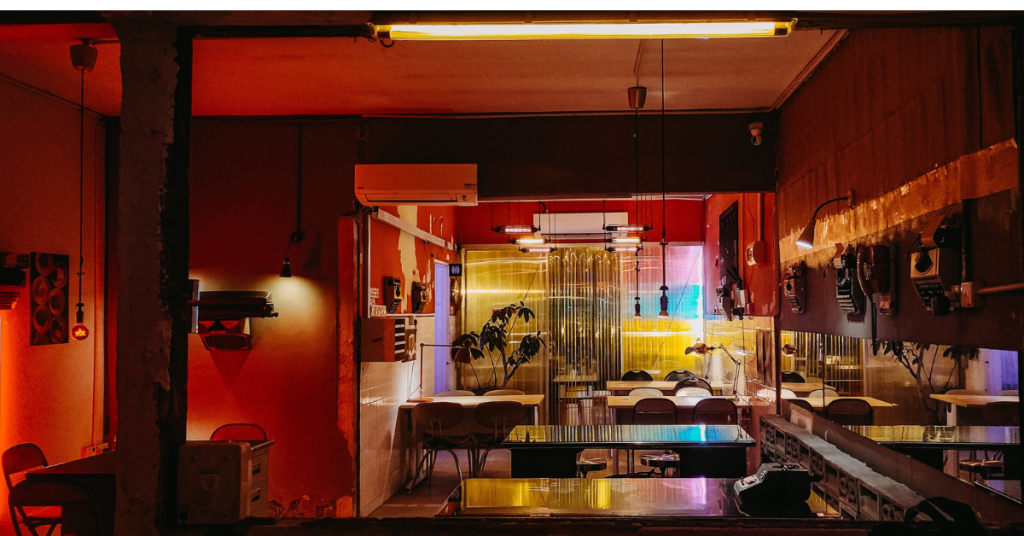
You might think that the name of the business is a reference to its origins, and you’d be somewhat correct. But that’s not the only reason.
Beyond that, the couple also believes that because syarikat means company in Malay, the name would help represent how their space was designed for everyone, much like an office.
To transform the abandoned space into the trendy café it is today, the couple worked with a friend who provided significant help along the way.
“Zunwei shared a wealth of knowledge about coffee and beverages, and he also created the beverage menu for Syarikat, which we continue to use today as a way to honor and show respect to our friend,” they shared.
With his help, they began piecing everything together, doing much of the interior work themselves.
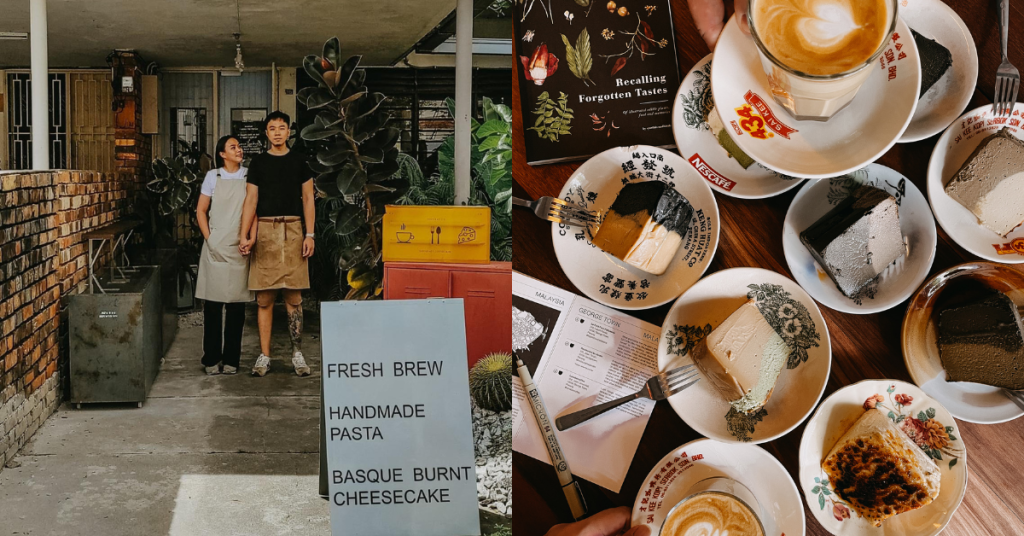
This includes designing a photo spot where the walls are covered with Chinese calendars. There’s also a wall featuring old typewriters collected from various locations in Malaysia.
After six months of hard work, the café was officially opened in 2019.
From cheesecakes to pasta
At first, Syarikat primarily sold nasi lemak with fried chicken, which was popular among customers. However, just when things were going well, the pandemic struck, forcing them to close the shop in March 2020, just three months after they had opened.
During the pandemic, they experienced a cycle of closing and reopening, leading to instability.

Instead of feeling down about it, they decided to shift their focus and conduct research on Basque burnt cheesecake.
Jolene was inspired by one of her favorite restaurants, named Tokyo Restaurant, renowned for its Basque burnt cheesecake. She was amazed at how a single slice of cake could contribute to such a successful business.
So, when they reopened in 2021, the couple shifted their focus to Western-style cuisine and introduced a variety of flavors of Basque burnt cheesecake. Lo and behold, they sold more than 20,000 pieces of their signature cheesecake in one year.
The cheesecake even brought in various celebrities, like the queen of Terengganu who visited them to enjoy it.
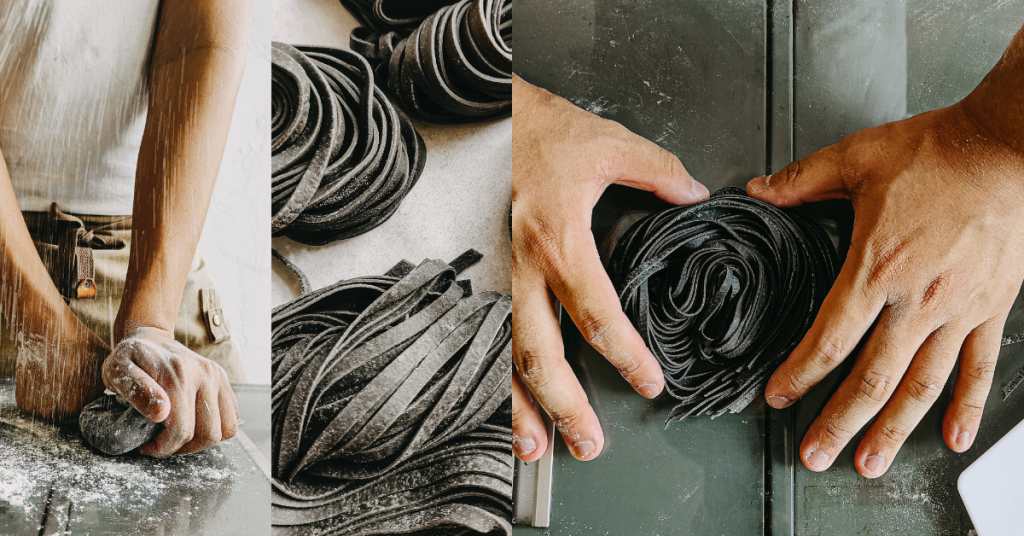
Continually striving to grow and maintain relevance, Syarikat began focusing on handmade pasta in 2022. While there were many Western food cafes, they noticed it was still challenging to find fresh pasta in Penang.
Most recently, they’ve launched their own tiramisu, to which the response has been overwhelmingly positive.
Since they stay open until midnight on Fridays and Saturdays, they hope to attract more late-night visitors, becoming a new go-to spot for those craving desserts in the nighttime.

Expanding the syarikat
Around five years into their business now, Syarikat has no plans of slowing down.
Jolene and William actually have bold ambitions for the business, including opening up a baking studio for visits and takeaways. This would be housed in a separate venue, though, which is rather exciting.
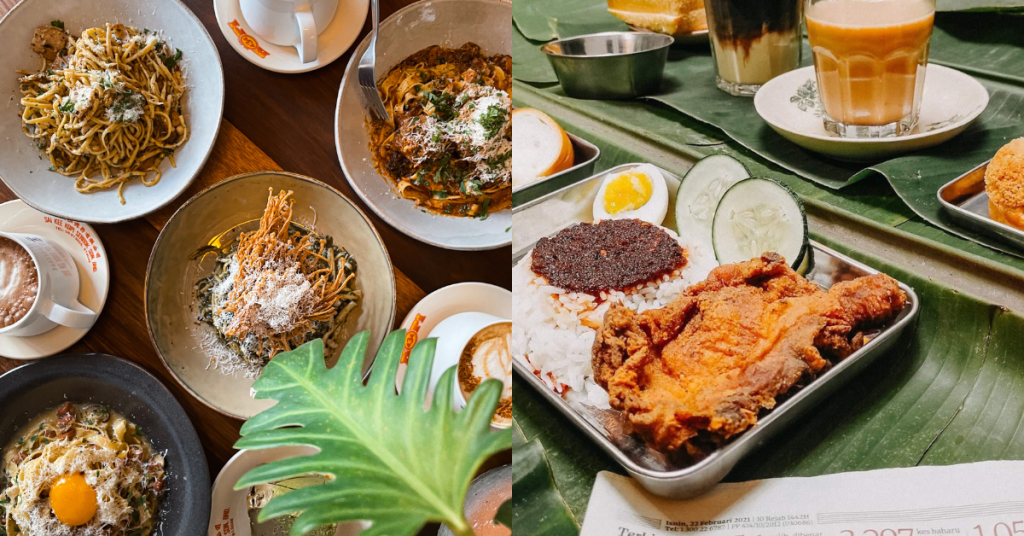
As for the existing Syarikat Cafe, the couple aims to venture into casual dining, where they plan to offer more creative dishes beyond just pasta.
Although there were many bumps in the road, like any syarikat worth its salt, the duo has been able to overcome them, and grow more resilient because of them.
Also Read: Adapt or go obsolete: Learn to embrace AI & cybersecurity for your biz at this KL summit
Featured Image Credit: Syarikat Cafe